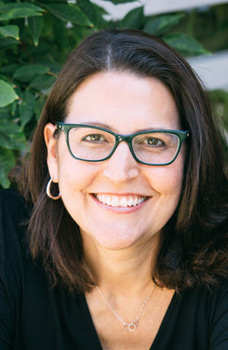
Julie Clark explains what inspired her to write The Lies I Tell
What inspired you to write The Lies I Tell?
I'm obsessed with true crime podcasts, and a few years ago, I came across one about a con artist who went to elaborate lengths to lure in his victims, gain their trust, and then steal everything they owned. That particular con artist was a man, but I remember thinking, What about female con artists? Would people be more inclined to trust them? From there, my imagination took over.
Like with The Last Flight, I didn't want to write a female character who was a true sociopath, so I spent a lot of time trying to figure out a way to write a female con artist with a conscience. A woman who used her intellect and wits to do some good in a world where women often get the short end of the stick.
Meg and Kat don't trust each other, even as they get closer and closer. What was the most challenging part of writing their relationship?
The most challenging part was making sure the relationship evolved naturally, while also keeping the timeline relatively short. Kat has the heavy load of her own trauma that keeps her from seeing Meg clearly at first, and I needed her to slowly begin to embrace Meg, despite who she believed Meg to be. The other challenging part was making sure Meg was simmering with her own pent-up rage, while at the same time keeping her sympathetic to the reader. A lot of plates to keep balanced!
Kat's relationship with Scott is heavily influenced by his gambling addiction. What did you want readers to take from this conflict?
I want readers to see the complexity and heartache of loving an addict. That they are more than the worst thing they've done. I also want readers to remember that our instincts are almost always right. When something seems off, we don't need to know why; we only need to trust the feeling.
Meg's philosophy evolves throughout the book from punishment to restoration. Why was it important for you to show this growth?
All characters need growth, even con artists! I don't really believe that real-world con artists are anything like Meg; however, I don't really view Meg as a true con artist. She's a vigilante, exacting her own brand of justice in a world where too many people have the ability to evade it. It's that quality, I think, that allows us to root for her.
Meg's greatest disappointment is the transience of her friendships. How do you think you would handle a nomadic and secretive life like hers?
I'm a homebody at heart, so moving every couple years would be really difficult for me. I like my structures and routines, though I admit a part of it might be thrilling—to relocate and completely reinvent yourself, however many times it takes to get it right. I'd be terrible at the secret-keeping though. I'm pretty sure, very early on, I'd let something slip and the game would be over.
Unless otherwise stated, this interview was conducted at the time the book was first published, and is reproduced with permission of the publisher. This interview may not be reproduced or reprinted without permission in writing from the copyright holder.
Talent hits a target no one else can hit; Genius hits a target no one else can see.
Click Here to find out who said this, as well as discovering other famous literary quotes!
Your guide toexceptional books
BookBrowse seeks out and recommends the best in contemporary fiction and nonfiction—books that not only engage and entertain but also deepen our understanding of ourselves and the world around us.